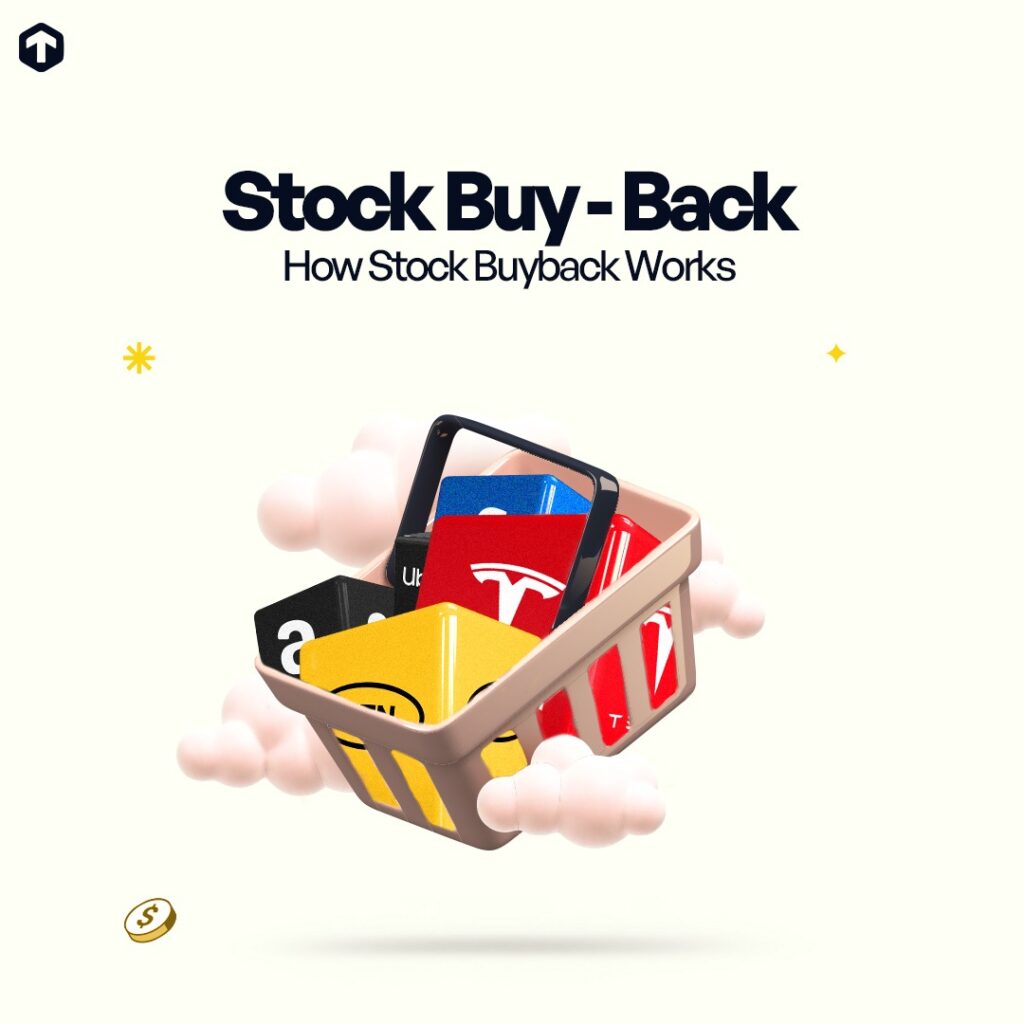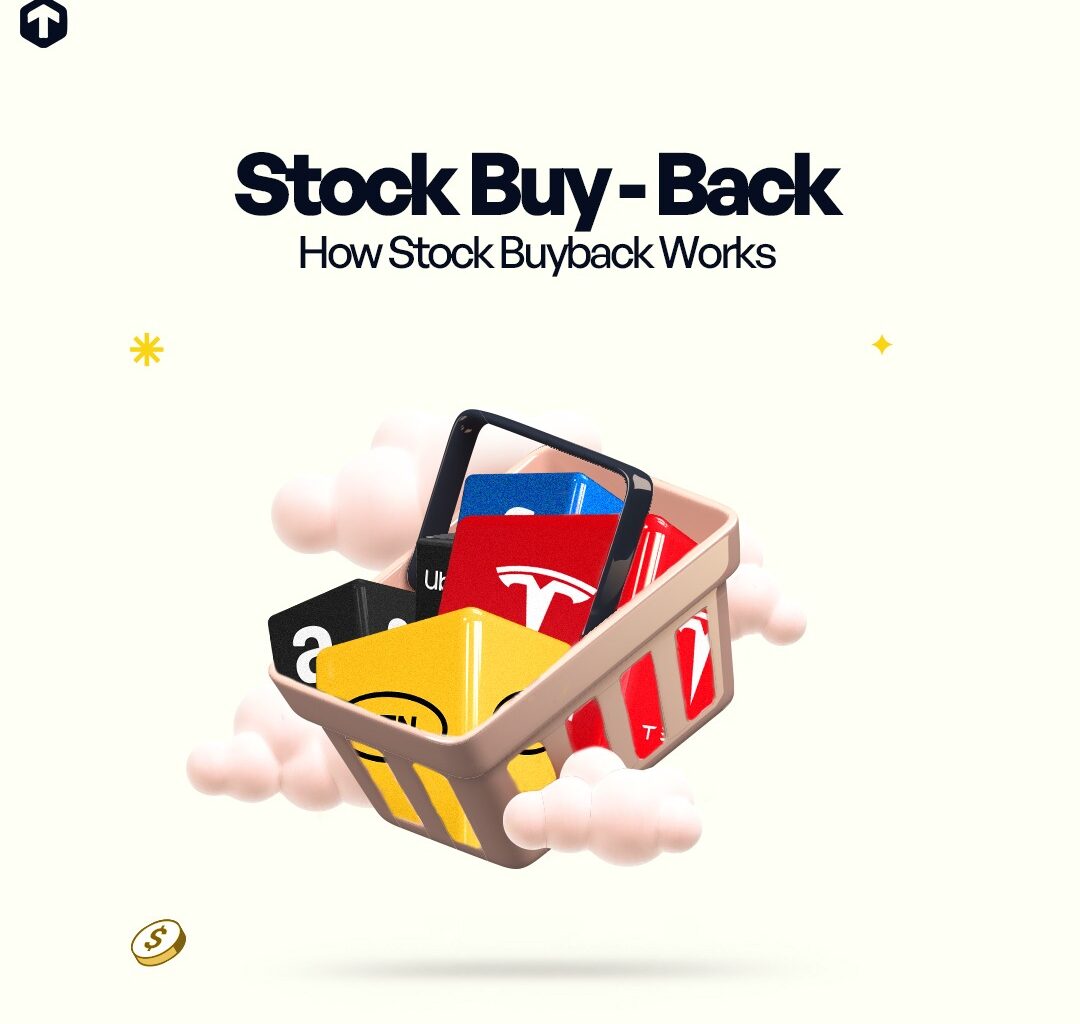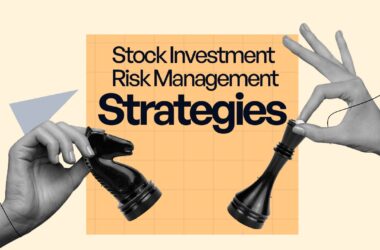In stock investment, “stock buyback” is one term that often sparks curiosity and debate. When companies decide to repurchase their shares, it can have a significant impact on their stock value. But what does this mean for the company’s financial health? And how does it affect investors?
In this blog, we’ll understand stock buybacks and how it works. We also look at the positive and negative impact it might have on the company.

What is Stock Buyback?
A stock buyback is when a company buys back its own shares from shareholders. Whenever this happens, fewer shares are in circulation, making the remaining shareholders own a bigger stake in the company.
In other words, the stock buyback can make shares more valuable and increase future returns for shareholders. This strategic move is often driven by various motives, including boosting shareholder value, signaling confidence to investors, and efficiently utilizing excess cash.
How Does Stock Buyback Work?
Understanding how stock buybacks work is crucial for every investor. Typically, a company allocates funds to buy its shares back from shareholders either through open market purchases or through a tender offer.
The repurchased shares are then either retired or held as treasury stock, impacting the number of outstanding shares. The impact on the number of outstanding shares is key; as the company buys back shares, the earnings per share (EPS) for existing shareholders tends to increase.
Why Do Companies Buy Back Stocks?
1. Undervaluation
When a company believes its stock is trading below its intrinsic value, it might choose to repurchase shares. By repurchasing shares, the company can increase earnings per share (EPS) and shareholder value. This act can signal to the market and investors that the company’s management is confident about the future of the stock.
2. Returning Excess Cash to Shareholders
If a company has accumulated a significant amount of cash on its balance sheet and does not see attractive investment opportunities, it may choose to return excess cash to shareholders through share buybacks. This can be a tax-efficient way to distribute cash compared to dividends.
3. Tax-Efficient Capital Return
Share buybacks provide a (almost) tax-free way to return capital to shareholders compared to taxable dividends. While dividends incur taxes ranging from 15% to 23.8%, buybacks typically don’t trigger taxable events for shareholders.
4. EPS Improvement
Buybacks can make a company’s earnings per share (EPS) growth appear better than it actually is. By reducing the number of outstanding shares, the same profit translates to higher EPS, creating the impression of stronger earnings growth.
Effects of Stock Buybacks
- Increased Earnings Per Share (EPS)
One of the primary benefits of stock buybacks is the potential increase in earnings per share. A stock buyback can boost earnings per share (EPS) by reducing the number of shares outstanding. This metric is important to investors and can make the company’s financial performance appear stronger on a per-share basis.
- Enhanced Shareholder Value
Stock buybacks can be seen as a way to return value to shareholders. When a company buys back its shares, the reduced number of outstanding shares can drive up the stock price, creating value for existing shareholders
- Signal of Confidence
A company’s decision to repurchase its own shares can be interpreted as a sign of confidence in its future prospects. If management believes the stock is undervalued, it may choose to invest in its own shares rather than pursuing other opportunities.
- Flexibility in Equity Management
Companies can use stock buybacks strategically to manage their equity. For example, buybacks can offset the dilution caused by stock-based compensation programs or employee stock option plans.
Read: How to Make Passive Income in Nigeria

Conclusion
Stock buybacks play a significant role in shaping a company especially when there is a high decline in stock price. While they have the potential to boost shareholder value and instill confidence in investors, the risks and criticisms surrounding the mismanagement of funds cannot be ignored. You need to understand the mechanics, potential benefits, and risks associated with stock buybacks.






